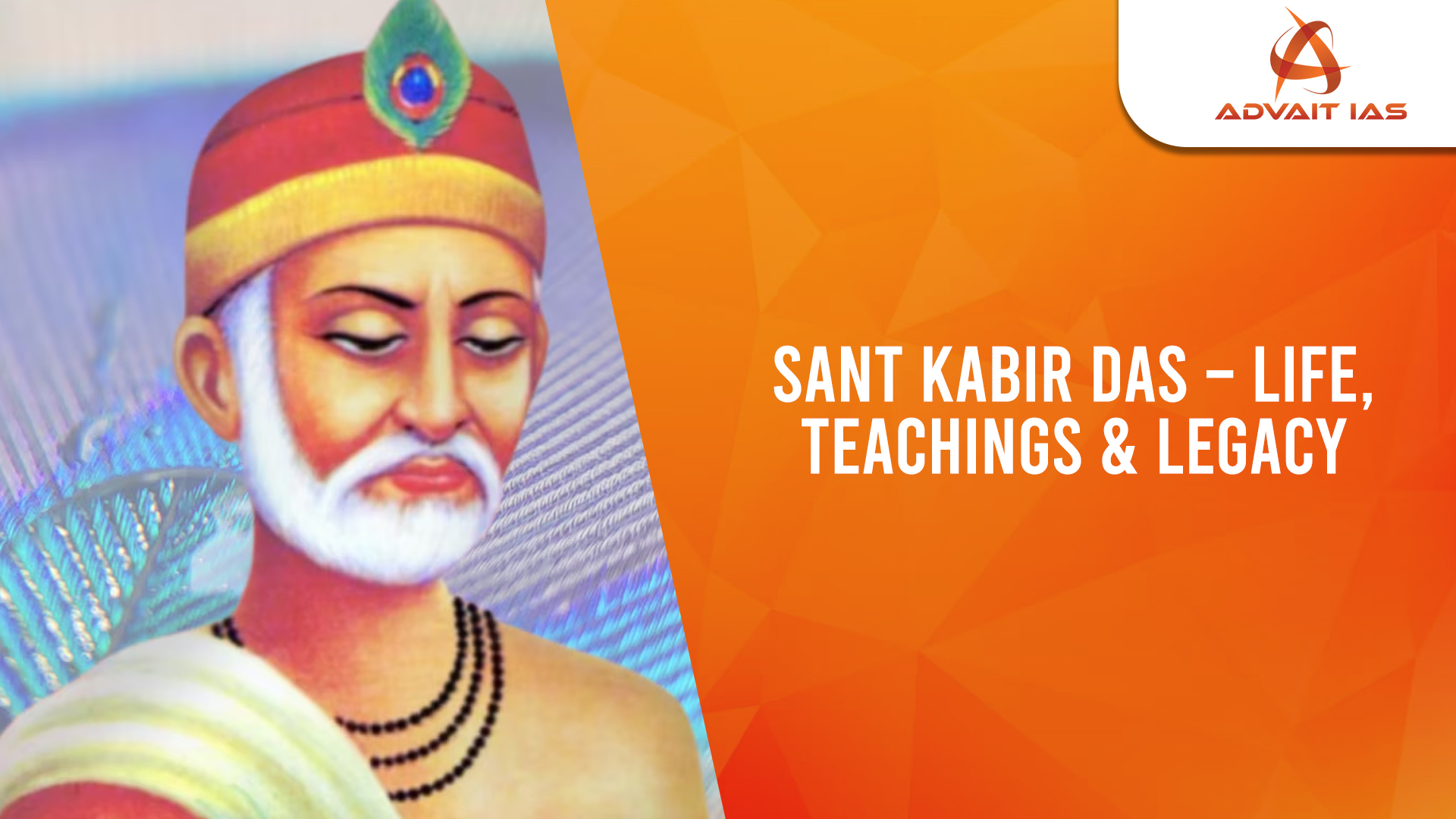Kabirdas Jayanti (Kabir Prakat Divas) – 11th June 2025 marked his 648th birth anniversary
Sant Kabir Das?
- Period: 1440–1518 CE
- Place of Birth: Varanasi, Uttar Pradesh
- Background:
- Born into a weaver community (julaha), Kabir often highlighted his humble, lower-caste identity as “kori”, to challenge social hierarchies.
- He bridged Hindu and Islamic spiritual traditions, reflecting syncretic Indian culture.
Teachings and Philosophy:
- Bhakti Tradition:
- Leading figure in the Nirguna Bhakti movement — devotion to a formless, attributeless God (Nirguna Brahman).
- Opposed idol worship, caste discrimination, and ritualism.
- Stressed truth, love, inner purity, and direct personal experience of the Divine.
- Influences:
- Spiritual guidance from Ramananda (Hindu Bhakti saint) and Sheikh Taqi (Sufi teacher).
- Merged Bhakti and Sufi elements, promoting universal spirituality.
- Language and Accessibility:
- Advocated vernacular devotional expression, making spirituality accessible to the common people.
Role in Bhakti Movement:
- Part of the Bhakti Movement (7th–15th centuries) that emphasized:
- Inner devotion over rituals
- Equality over caste
- Vernacular over Sanskritic traditions
- Helped democratize religion and challenge Brahmanical dominance and Islamic orthodoxy
Literary Contributions:
- Wrote extensively in Brajbhasha, Awadhi, and Sant Bhasha.
- Famous for dohas (couplets) and bhajans marked by:
- Simplicity and depth
- Use of “Ulatbansi” – paradoxical verses meant to provoke spiritual introspection
- Major works/compilations:
- Kabir Bijak (preserved by Kabirpanth in UP and Bihar)
- Sakhi Granth, Kabir Parachai, Anurag Sagar
- Kabir Granthawali (linked to Dadupanth, Rajasthan)
- His verses are also featured in the Guru Granth Sahib, compiled by Guru Arjan Dev, indicating his profound impact on Sikh philosophy.
Legacy and Followers:
- Founded the Kabir Panth, a spiritual community still active today.
- Followers (Kabir Panthis) spread across UP, MP, Chhattisgarh, Bihar, and beyond.
- Emphasize simplicity, non-violence, and communal harmony.
- Revered by Hindus, Muslims, and Sikhs alike — a symbol of India’s syncretic spiritual heritage.
Contemporary Relevance
- A spiritual icon who challenged dogma and social inequality, Kabir’s teachings remain relevant in:
- Promoting communal harmony
- Fighting caste-based discrimination
- Encouraging spiritual introspection and ethical living
Sant Kabir Das was more than a poet—he was a revolutionary social reformer, mystic, and literary craftsman whose voice continues to inspire India’s quest for equality, justice, and inner realization.






